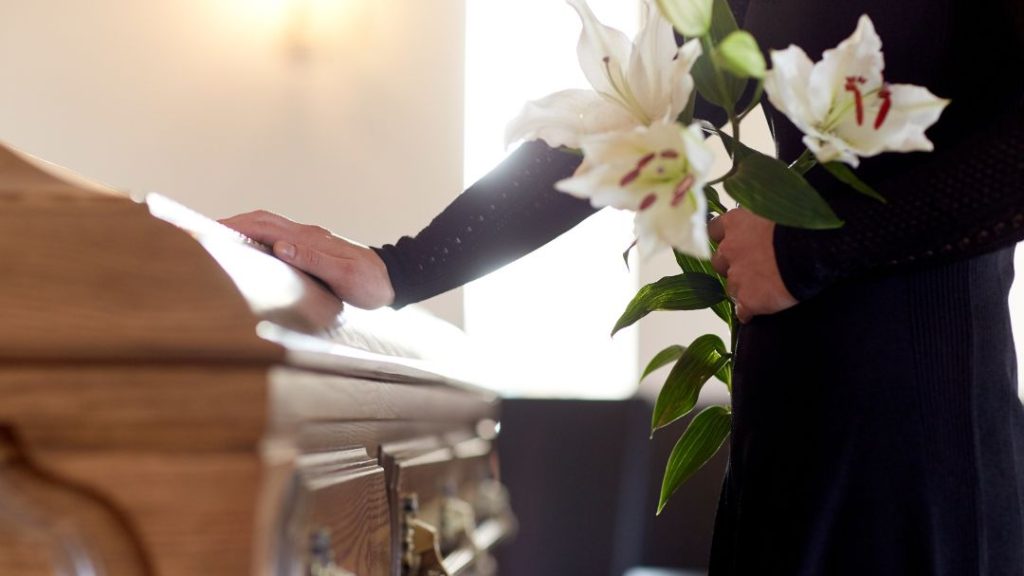Losing a loved one is one of life’s most challenging experiences, and during such a time, it can be overwhelming to handle funeral arrangements. However, funeral planning is an essential part of the process, ensuring that your loved one’s memory is honoured in a meaningful and respectful way.

Understanding the key decisions involved can help ease the burden during this difficult time. Here’s a guide to the important aspects of funeral planning, including what to expect and the decisions you’ll need to make.
Understanding the Role of Funeral Homes
Funeral homes play a critical role in funeral planning. They are the professionals who can help guide you through the arrangements, offering support and advice along the way. Funeral homes handle various logistical details, such as preparing the body, coordinating the service, arranging transportation, and assisting with legal documents. Choosing the right funeral home is a crucial step in the planning process.
When selecting a funeral home, consider their reputation, services, and pricing. It’s important to find a provider that understands your family’s needs and respects your wishes. Many funeral homes offer packages, but it’s essential to ask for a breakdown of the services included to avoid unexpected costs. Whether you’re planning a traditional funeral, cremation, or celebration of life, the right funeral home will make a significant difference in ensuring everything runs smoothly.
Deciding Between Burial or Cremation
One of the first decisions you’ll need to make is whether to opt for burial or cremation. This is often influenced by cultural or religious beliefs, but it may also reflect the wishes of the deceased.
- Burial: Traditional burials involve placing the body in a casket, which is then lowered into the ground at a cemetery. Burial services often include a viewing, eulogy, and a graveside service.
- Cremation: Cremation is an increasingly popular choice, as it offers flexibility and often lower costs than traditional burials. After the body is cremated, the ashes can be kept in an urn, scattered, or interred in a memorial site.
It’s important to have a clear understanding of the deceased’s preferences regarding burial or cremation, but if these are not known, discuss the options with close family members and make the choice that aligns with everyone’s wishes.
Selecting a Funeral Service Type
Funeral services vary widely depending on the person’s wishes, religious practices, and family traditions. Some common types of funeral services include:
- Traditional funeral service: A formal service often held at a funeral home, church, or chapel, featuring readings, music, and a eulogy.
- Celebration of life: A more casual service that focuses on celebrating the person’s life and legacy rather than mourning their loss. It often includes personal stories, music, and pictures that reflect the individual’s passions and personality.
- Graveside service: A smaller, intimate service held at the cemetery, usually without a formal viewing or visitation. It often involves a few close family members and friends.
Work with your chosen funeral home to determine which service best honours the deceased’s life and aligns with your family’s preferences.
Choosing the Right Funeral Products
Another key decision in funeral planning is selecting the necessary funeral products, such as caskets, urns, and other items. There are a wide variety of choices available, ranging from simple and affordable options to more elaborate designs.
- Caskets: When choosing a casket, consider factors such as material (wood, metal, or biodegradable options) and style. The funeral home can provide you with a selection based on your budget and preferences.
- Urns: If opting for cremation, you will need to select an urn. Urns come in many styles and materials, including wood, metal, and biodegradable options. Some families opt for a decorative urn to display at home or a simple one to keep the ashes in a memorial space.
These products should be selected with the wishes of the deceased and the family in mind, as well as considering the budget for the overall funeral arrangements.
Addressing Legal and Financial Aspects
During the funeral planning process, there are important legal and financial aspects that need to be handled. These include obtaining a death certificate, notifying the deceased’s employer, and contacting insurance companies. It’s also essential to manage any pre-arranged funeral plans, including insurance policies or burial plans.
If the deceased had funeral insurance, this could help cover the costs of the funeral. Be sure to discuss financial details with the funeral home and ensure you are clear on any costs involved.
Personalizing the Service
Personalisation is a meaningful way to honour your loved one’s life and create a funeral service that reflects their personality and values. Consider adding personal touches, such as:
- Tributes and eulogies: Family members or close friends can share memories and celebrate the individual’s life.
- Music and readings: Incorporate favourite songs, hymns, or poems that were meaningful to the deceased.
- Photos and videos: Display a photo slideshow or video montage to showcase the person’s life and accomplishments.
Adding these personal elements will help make the service unique and meaningful for everyone in attendance.
Planning a funeral is never easy, but by understanding the key decisions involved and working with a trusted funeral home, you can ensure that your loved one’s final arrangements are carried out with care and respect.
Whether you choose burial or cremation, a traditional service or a celebration of life, the decisions you make should reflect your loved one’s personality, values, and wishes. Taking the time to plan thoughtfully will provide comfort to those left behind and honour the memory of your loved one in a meaningful way.



